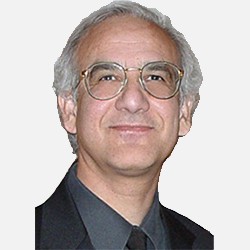The views expressed in our content reflect individual perspectives and do not represent the authoritative views of the Baha'i Faith.
What did Baha’u’llah mean when he wrote “From two ranks amongst men power hath been seized: kings and ecclesiastiacs”?
In late 1860s, shortly after writing letters announcing his mission to the political and religious leaders of the world, Baha’u’llah wrote this statement, warning against the ongoing tyranny of the kings and the clerics: “From two ranks amongst men power hath been seized: kings and ecclesiastics.” – Baha’u’llah, quoted by Shoghi Effendi in God Passes By
This statement simultaneously reaffirms the message of Baha’u’llah to the leaders of the world, and at the same time generates a response to the neglect of his message by the heedless and proud monarchs and clerics. However, the sociological significance of these words of Baha’u’llah is limitless. Baha’u’llah’s statement captures the entirety of his revelation, emphasizes the future destiny of humanity, offers a path of liberation to Iran and the Middle Eastern societies, and proclaims the birth of human beings out of the bondage of a beastly culture.
In 1868, Baha’u’llah declared his mission to the leaders of the world, saying that a new divine messenger had come to free the oppressed and the downtrodden. In the letters he sent to them, Baha’u’llah asked:
If ye stay not the hand of the oppressor, if ye fail to safeguard the rights of the down-trodden, what right have ye then to vaunt yourselves among men? – Baha’u’llah, The Proclamation of Baha’u’llah
Through this universal declaration, Baha’u’llah announced to the world that humanity has arrived at a new stage of its historical development, and that in this new stage humanity must understand the organic character of the new emerging world, and move towards a culture of unity in diversity, a culture characterized by justice, consultation, and peace. This new culture facilitates the maturation of humanity and the emergence of humans as rational and spiritual beings. In this culture of the maturation of the world there can be no room for either spiritual, cultural or political autocracy.
Liberty and Democratization as Requirements of the Age
Baha’u’llah viewed the future of humanity as one of progressive movement towards liberty and democracy. He announced to the world that in the emerging new global culture there is no longer any room for despotism and tyranny. In his words “power hath been seized” from two groups: kings and clerics.
The word translated here as “power” is ‘izzat, which implies two meanings. One is power and force, the other is exaltation, praise and prestige. What Baha’u’llah emphasizes here is what the sociologist Max Weber meant by legitimate power (Herrschaft) – namely, a power rooted in the consent of the people and their voluntary submission to authority.
From a Baha’i perspective, then, the future of humanity involves a rejection of despotism for a culture of liberty, equality, and the empowerment of individuals and groups in society. In the future the Baha’i teachings envision, tyranny would disappear because the culture of people will move towards appreciation of the dignity and nobility of all human beings.
However, this statement of Baha’u’llah does not imply a rejection of constitutional monarchy. Baha’u’llah rejected kingship as despotism and autocracy, but accepted and even praised constitutional monarchy in which actual political decisions are invested in the parliament while monarchy serves as a symbol of the unity of the people:
Every age hath its own problem, and every soul its particular aspiration. The remedy the world needeth in its present-day afflictions can never be the same as that which the subsequent age may require. Be anxiously concerned with the needs of the age ye live in, and center your deliberations on its exigencies and requirements. – Baha’u’llah, Gleanings from the Writings of Baha’u’llah
This new Baha’i worldview emphasizes a historical consciousness, the awareness that humans and societies are dynamic, alive, and ever-advancing. No aspect of culture and society, Baha’is believe, can remain static. In fact, even the word of God, the realm of religion, also acts in dynamic and progressive ways. This historical consciousness rejects the worship of traditions and the cult of traditionalism, and emphasizes that each age has its own requirements.
For Baha’u’llah, the new stage of human development his teachings brought requires the end of human bondage and oppression. Consequently, Baha’is believe that the trend of history moves towards the maturation of humanity and the emergence of social and political institutions which embody, reflect and realize that new culture. Tyranny is contrary to the requirement of the age.
This same principle was clearly emphasized by the next leader of the Baha’i Faith, Abdu’l-Baha, who during the constitutional Revolution of Iran (1906-1911) defined constitutionalism and democracy as the irresistible requirement of the age. In April of 1909, when through a restoration of despotism the Iranian parliament had been dissolved, Abdu’l-Baha wrote these words:
According to the divine wisdom, each age has its own requirement and its binding necessity. Everything can be resisted except the requirement of the age, resistance to which is impossible, for denying the necessity of time and defeating its requirement is outside of the realm of possibility. “That is the Decree of the Almighty, the Omniscient.” At this time and age, autocratic government is impossible, for it causes a myriad of problems for the people and it utterly precludes the tranquility of the soul and the health of consciousness. Likewise, it is contrary to the peace of the government as well as the well-being and welfare of the people. – Abdu’l-Baha, INBA 17: 233-5, provisional translation by the author.
Spiritual Democracy as the Precondition of Political Democracy
Although Baha’u’llah’s statement about the world’s kings and clerics negates political despotism, it also does not simply affirm political democracy. Baha’u’llah’s statement defines two forms of tyranny as contradictory to the requirements of the age – political tyranny as one, and clerical despotism as the other. In fact, Baha’u’llah’s statement goes beyond affirming the necessity of both political democracy and spiritual democracy. The heart of Baha’u’llah’s statement is the organic relation between these two phenomena – in other words, spiritual or cultural democracy forms the necessary condition for the realization and success of political democracy.
Historically, unbridled authority of clerics has usually caused the institutionalization of cultural or spiritual tyranny. Clerical authority means that individuals renounce their own reason and blindly follow the dictates and judgments of the clerics. The clerical caste legitimizes traditionalism and renounces reason. Individuals must obey the judgments of the clerics and even let the clerics think for them. In a society where people refuse to think for themselves because they voluntarily depend on the judgment of clerics, there is no possibility of the emergence of a culture of rationalism, equality, and dignity of all human beings. Furthermore, the clerics and their traditionalism oppose the evolving requirements of the age and the empowerment of the people. This medieval outlook divides people across many categories and institutionalizes various forms of inequality and oppression in society. Writing in the mid-19th century, therefore, Baha’u’llah affirmed the sociological fact that without a culture of the empowerment of individuals and their independent thinking no real political democracy is possible in human society.
In a sense the history of the Western European societies affirms the principle enshrined in the word of Baha’u’llah. Both the religious reformation through Protestantism (16th century), and the emergence of the philosophical forms of rationalism (17th and 18th century) paved the way for the emergence of political democracy between the 18th and 20th centuries. Furthermore, the extension of the culture of individual rights to various underrepresented segments of society led to an increasing maturation of democracy.
At the same time, however, Baha’u’llah’s statement warned against developing a political culture in which partisan politics leads to the individual’s enslavement to party loyalty, party conformity, hatred of the supporters of the other party, and the degradation of political discourse by demonization of the other party. If partisan politics turns into group conformity, we will witness the emergence of a secular clerical authority, when the politicians, celebrities, and party intellectuals become the new clerics. When any individual’s judgment on an issue depends on the judgment of the party, and not one’s own independent thinking, we have once again reduced ourselves to bondage to a secular culture of clerical despotism.
In such a situation no real political democracy – and namely no real collective consultation – ever becomes possible. On the contrary, such a hyper-politicized culture implies a pathological turn towards the logic of mass conformity. The degradation of intellectual discourse, when certain ideas are systematically excluded from public and intellectual discourse, represents the tyranny of the left or the tyranny of the right. In both cases, when suppression of freedom of thought is institutionalized in our universities and media, we are replacing the culture of ideological tyranny in place of the dignity of consultative democracy.
You May Also Like
Comments

















It is true that the thoughts of an unlimited infallibility and of theocracy play a huge role in the psychological-spiritual health of the believers, especially of those that occupy administrative posts of the Bahá'í Administrative Order.
The best prescription to cure to this is to read all the relevant Bahá'í writings on these two topics and try to research about the original words used. You will see through your own eyes and not through the eyes of others. Teaching the Faith whenever you can is another medicine of the prescription I mentioned before. I am cured of this ...thanks to God, and thanks to Sen and Nader.